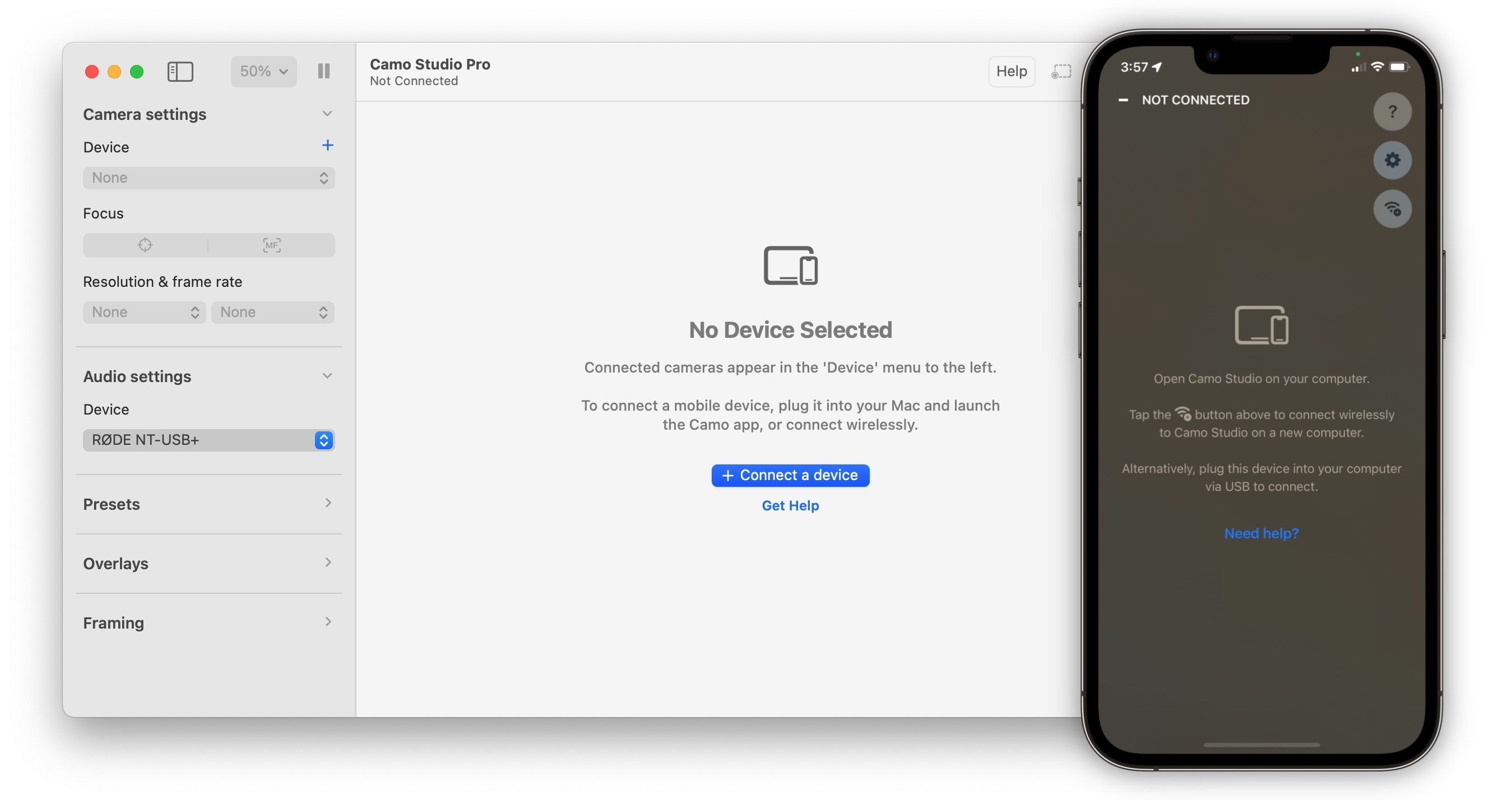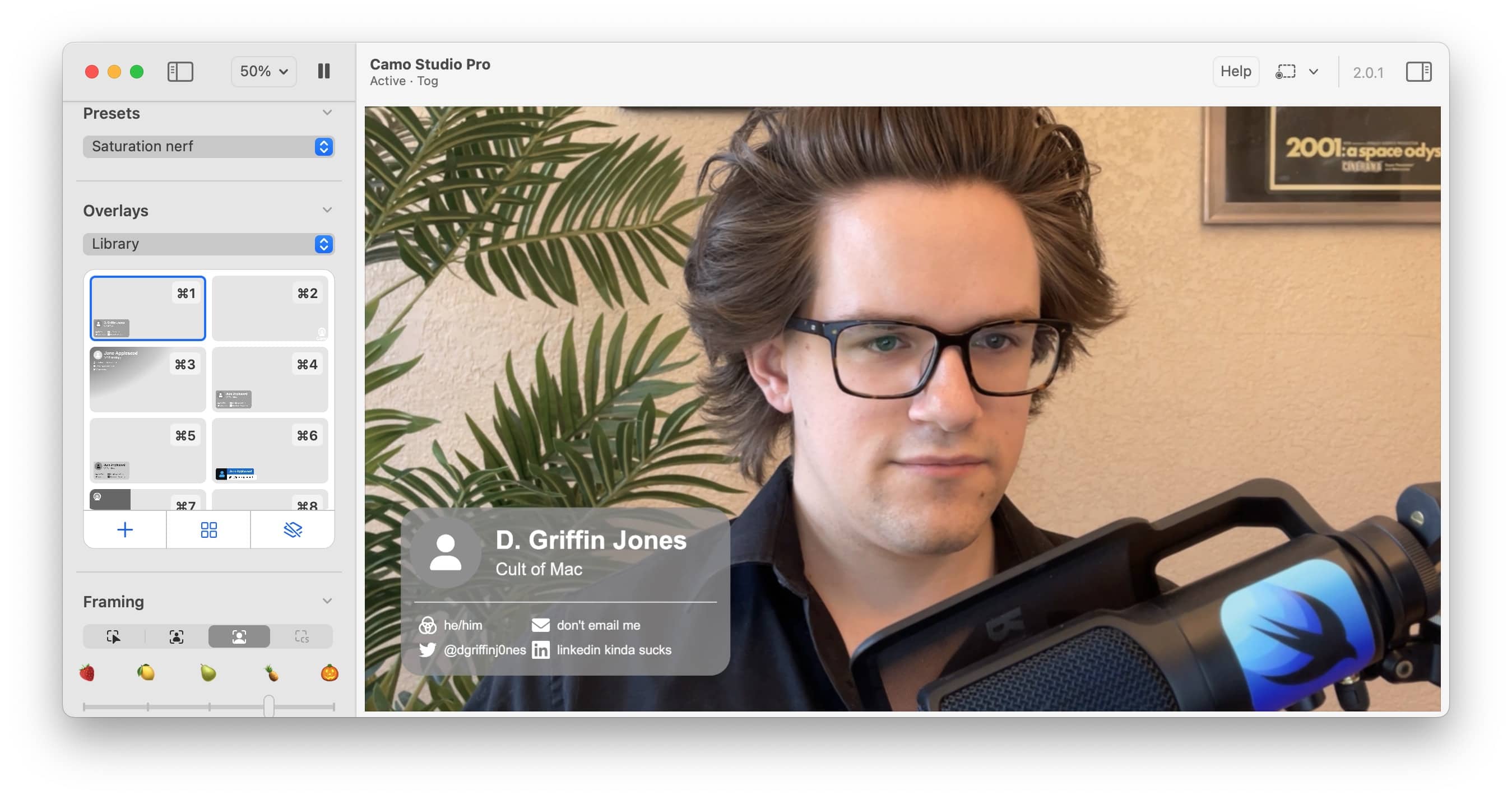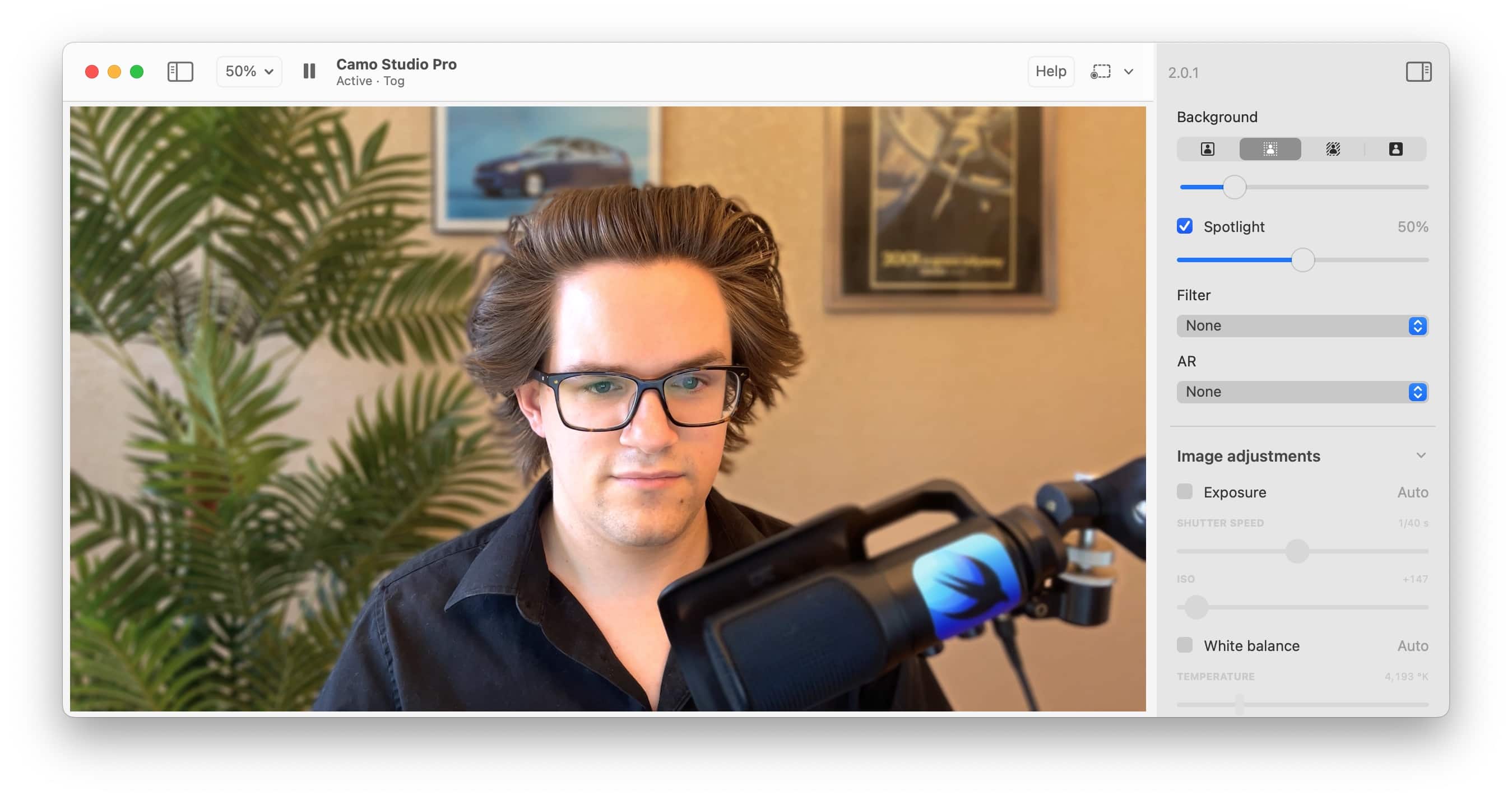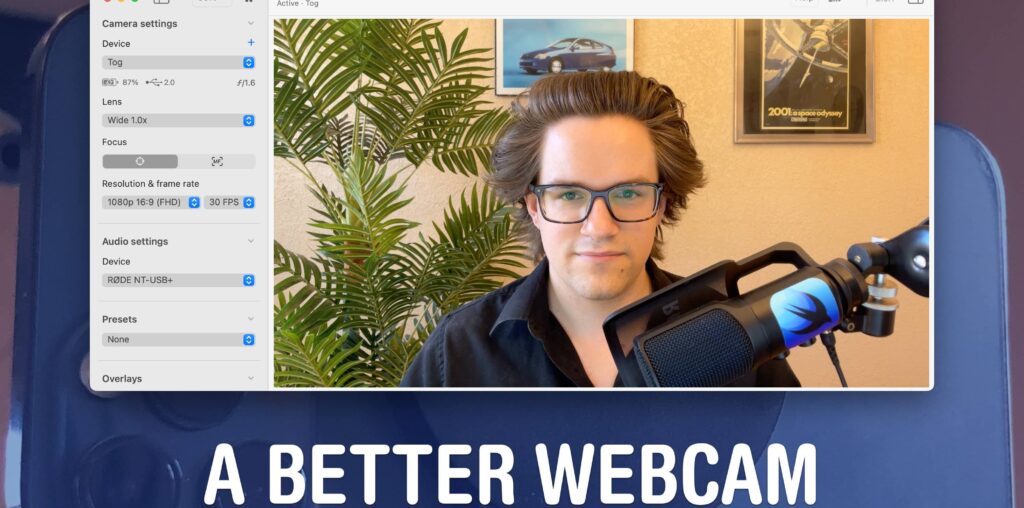Camo is a powerful app that lets you use your iPhone, and any connected USB camera, as a webcam for your Mac. I use it every week to record videos and livestream podcasts. The camera built into the MacBook — and even the high-end Studio Display — just doesn’t compare to the clarity and quality of an iPhone camera.
Apple built a basic version of this feature into macOS and called it Continuity Camera. But like most apps that have been sherlocked, Camo goes above and beyond with powerful tools and pro features.
Camo also works with Windows PCs, Android phones and most modern cameras, not just Macs and iPhones.
How to use your iPhone as a webcam on your Mac with Camo
First, you need to download the Camo Camera app from the App Store on your iPhone (or Android phone) and from the Camo website for your Mac (or Windows PC). There’s a free tier with watermark-free video recording, but it’s limited to 720p video, the iPhone’s main camera lens, 30 FPS and standard image mode. Unlocking all the features costs $40 annually or $5 monthly.
Once you have the apps set up, just launch them on each device.

Screenshot: D. Griffin Jones/Cult of Mac
If you want to use your smartphone as a webcam with Camo, I recommend using a wired connection. However, if you don’t have a cable handy, you can go wireless. Just click Connect a device on your computer, tap the Wi-Fi icon on your phone, and then scan the QR code.
Note: While the Camo Camera app runs on your phone, its screen will turn black after a few moments. This ensures your phone won’t overheat or run out of juice.
Get your camera set up
In the Camo app on your Mac, under Camera settings, you can pick which camera lens on your phone to use, and set the focus and frame rate. Audio settings, immediately below, let you pick which microphone to use.

Screenshot: D. Griffin Jones/Cult of Mac
Camo also gives you options for how your video will look when you use your iPhone as a webcam. Under Presets in the Mac app, you can change between a few different color modes. You can choose from a number of customizable overlay templates if you want to show your name and contact information. (If you later decide you don’t like it, just click the layer button on the bottom-right to turn it off.) To customize a template, right-click and select Duplicate and Edit.
Under Framing, you can choose to have the camera automatically zoom in and out and pan around to keep your face centered. For some reason, you set how close you want the camera to track your face on a scale of strawberry to pumpkin (pumpkin being a tighter crop) — but it does track my face pretty closely.
Record videos from Camo
To record videos from Camo, click the Record button in the toolbar. Click the arrow to the right to pick where to save the video. It continuously writes to the file as you record, so if the app crashes or something breaks partway through, not all will be lost.
Another nicety is that you can be on a FaceTime or Skype call while Camo is still recording.
Advanced image controls for use with iPhone as webcam on Mac

Screenshot: D. Griffin Jones/Cult of Mac
Camo also gives you additional camera controls, which you will find on the right side of the Mac app. Image enhancements use depth data from your phone to give your background a blur effect. You can go for a subtle artistic blur, a severe privacy blur or a full greenscreen background.
This doesn’t work great if you (a) have a microphone on an arm in front of you and (b) haven’t had a haircut in six months. It looks adequate in a screenshot, but live, it flickers noticeably.
The Image adjustments settings give you detailed control over color correction by hand. Under Advanced, you can compensate for flickering fluorescent lights. In the United Kingdom, for example, 50 Hz office lighting often conflicts with 30 FPS cameras — set it to 50 Hz to curtail the effect.
Overall, Camo is a well-made and thoughtfully designed Mac app that lets you use your iPhone or other smartphone as a webcam. If you want to go the extra mile and step up your video conferencing game, it’ll let you take full advantage of the powerful camera you carry in your pocket.
We originally published this post on how to use your iPhone as a webcam with a Mac on April 17, 2023. We updated the info.

